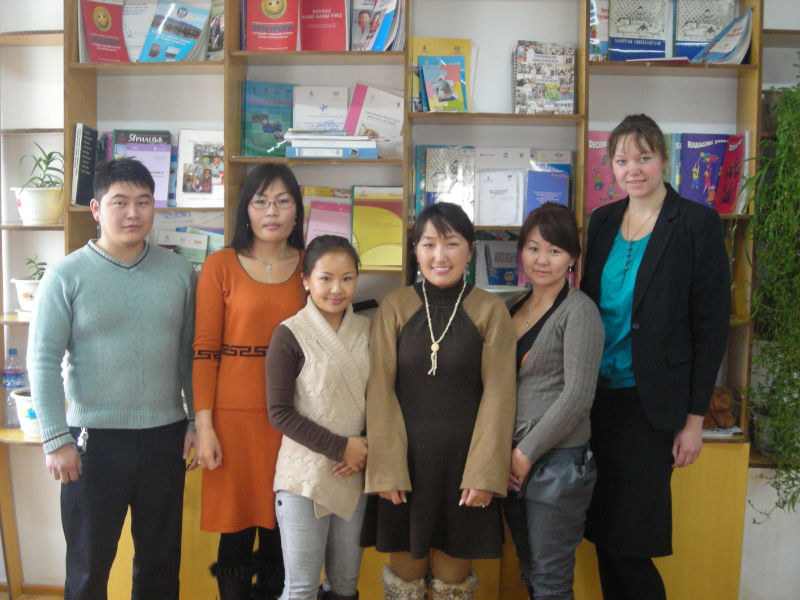Location
Saint sagaan, Dundgovi, Mongolia
Community Description
Saint sagaan village is the capital of Dundgovi province in Mongolia. It is located about 270 km south of the country’s capital of Ulaanbaatar in the Gobi dessert. Ulaanbaatar is also the nearest large urban center.
The population of Saint sagaan is about 14,000. Many of the people are employed by the government, working at either the provincial or the district government level. The province’s main industry is animal husbandry and livestock products, such as wool.
There are no above-ground water sources anywhere near Saint sagaan. The groundwater is deep enough, however, to withstand the well-below-freezing conditions (-22°F, -30°C) experienced in winter, and the pipes of places with running water are winterized.
All the water sources in Saint sagaan are wells, and water is pumped up using modern technology. Some buildings and homes have running water and some do not.
The water pumped from the wells is not pure and has many parasites and minerals. The people regularly boil the water in order to make it safe to drink, but they are unaware of, or unable to do anything about, the minerals which are causing them to have health problems such, as kidney stones.
 Project Description
Project Description
This project is to purchase 2 high-quality water filters and place them in public service locations where they will benefit the employees and the visiting public.
The Health Department and the Children’s Center are government-run organizations. The workplaces were chosen for the placement of the filters because they have stable populations, and staff can be trusted to use the filters consistently and appropriately.
The filters do not require electricity, and their use does not require that the water first be boiled. They use a 7-inch ceramic filter within a high-quality stainless steel container. They each produce 24 gallons of filtered water per day.
The ceramic filter elements remove up to 99.99% of particles, cysts, parasites and pathogenic bacteria including e coli, cryptosporidium, giardia, and salmonella typhi. The silver-impregnated system also reduces chlorine, rust, sediment and organic chemicals.
The total filter capacity is a minimum of 6,000 gallons depending on the source water. The carbon matrix interior provides additional support in removing chemicals like chlorine and other bad taste and odor elements.
The candles inside them need to be cleaned every 2 months and replaced every 2 years, at nominal cost.
Trainings of key staff members will cover such subjects as filter upkeep, the importance of drinking water, and how to order new filters through the Health Department at the end of two years.
Project Impact
The project will benefit 40 Health Department staff plus about 100 people each day who visit the health center and the adjoining hospital.
The project will also benefit 15 Children’s Center staff plus about 35 visiting children per day.
Peace Corps Volunteer Directing Project
Matthew Renninger and Megan Bush
Comments
This project utilizes the appropriate technology to resolve the local water quality problem that faces the community. With proper maintenance, the filters will continue to provide safe water for a large number of people far into the future.
Dollar Amount of Project
$500.00
Donations Collected to Date
$500.00 + additional amounts for future projects.
Dollar Amount Needed
$0.00 – This project has now been jointly funded through the generosity of Daniel Renninger, of Oak Harbor, WA, USA, and Janet Bush, of Springfield, VA, USA, who each donated $500. The additional funds will be used to fund the next project by Matthew, Megan and/or other PCVs in Mongolia
Those who wish may continue to donate using the Donate button below, and we will notify Matthew and Megan of your donation. Additional funds will be similarly used to fund future projects.
![]() This project has been finished. To read about the conclusion of the project, CLICK HERE.
This project has been finished. To read about the conclusion of the project, CLICK HERE.